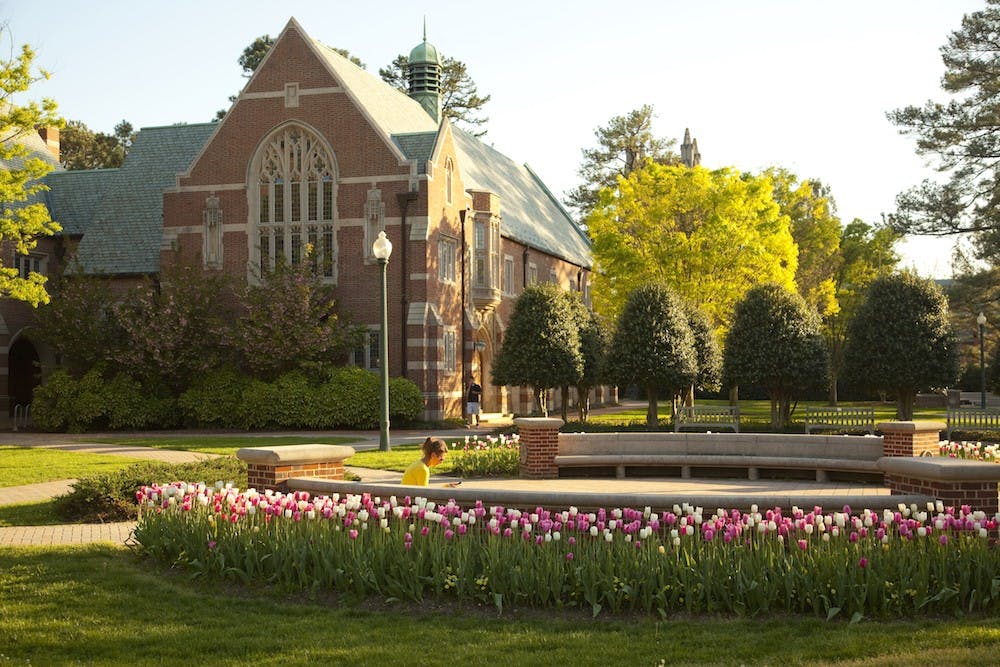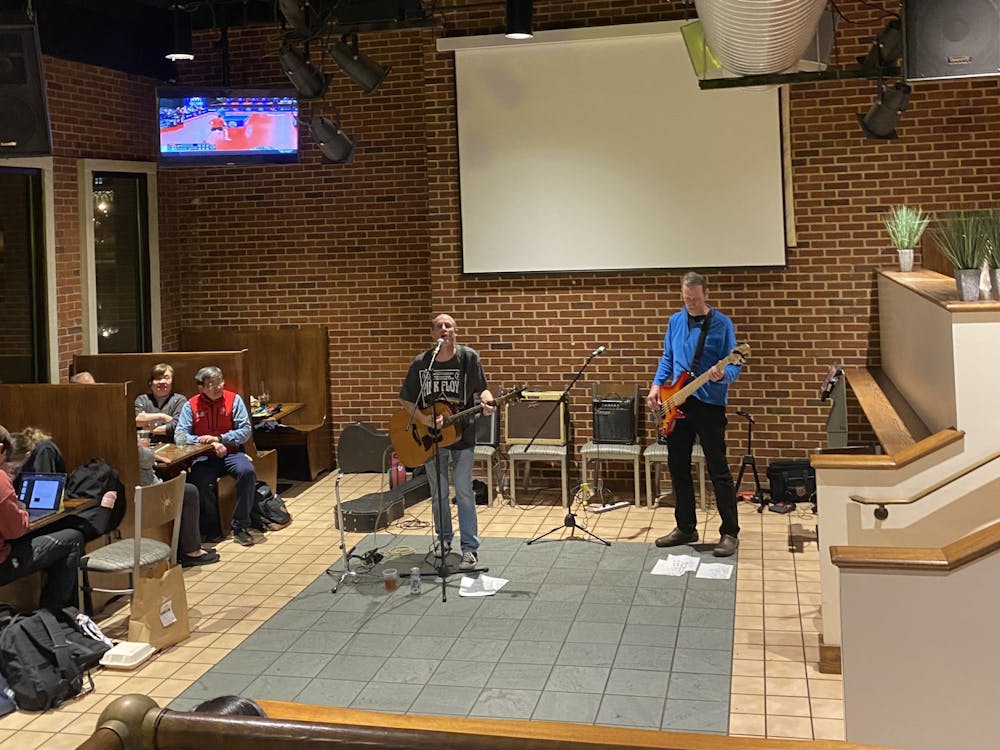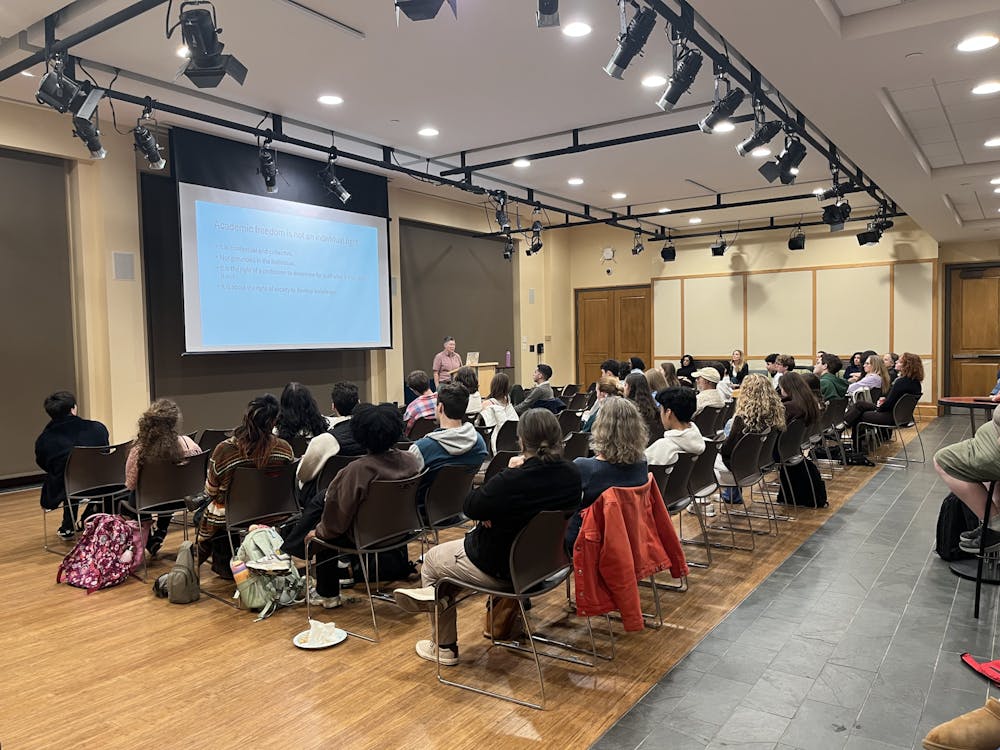One in five female undergraduates at Richmond have experienced sexual violence, according to a survey conducted by The Collegian in 2015. These findings are consistent with the White House's 2014 "Not Alone" report, which surveyed thousands of college students across the country, indicating that Richmond's culture is far from unique.
Freshman orientation and programs such as Spiders for Spiders strive to teach students how to prevent sexual assault, but when an assault actually occurs, victims can undergo psychological and physiological suffering long after the initial trauma. There are students at Richmond who face these challenges every day.
"With any kind of traumatic event — especially sexual assault — a lot of times your body goes into fight, flight or freeze mode," Katie Copty said. Copty is a sexual and domestic violence counselor at Safe Harbor, a Richmond city organization that offers support services for victims of sexual and domestic violence.
There are a range of psychological and physiological effects that occur after a sexual assault, Copty said. In her experience as a counselor, Copty said that symptoms related to Post Traumatic Stress Disorder (PTSD) were the most common, but depression was also a frequent aftereffect of sexual assault.
"Sexual assault changes your beliefs about yourself, and beliefs about the world around you and other people," Copty said. "So things and people that may have once felt safe don't feel safe anymore."
Beth Curry, the coordinator for sexual misconduct education and advocacy at Richmond, has extensive experience working with victims of sexual assault.
"People might keep reliving the assault, or keep seeing somebody's face, or smelling a certain smell," Curry said. "Flashbacks are fairly common and they can hit out of the blue."
Physical manifestations of stress and anxiety such as headaches, backaches and panic attacks affect victims of assault, in addition to PTSD-related symptoms. Both Curry and Copty said that people who have been assaulted becme hyper-vigilant and often lose their ability to relax.
All of these symptoms have a profound effect on academic performance, Curry said. Victims will often miss classes and struggle to focus, a common issue occurs when the perpetrator is in the same class as the victim or is encountered on the way to a class, she said.
"Often students experience a little dip in academics," Curry said. "We can help them change classes if needed, without going through with an investigation."
Though there are often barriers that prevent victims from reporting a sexual assault, Curry noted that an investigation can sometimes be part of the healing process.
"Different things work differently for everybody," Copty said.
Enjoy what you're reading?
Signup for our newsletter
The Collegian's survey found that less than four percent of respondents who suffered unwanted sexual encounters reported the incident to an official party.
"At college age, the peer group is the most important thing in [a student's] life," Curry said. "They'll put their peer relations above reporting. If they think 'I'm going to be ostracized if I report,' then they will typically choose keeping their friendships and social life over reporting."
Social stigma plays a large role in both reporting sexual assault and preventing it, Curry said. She added that sometimes a victim's circle of friends includes the perpetrator and they place blame on the victim.
"An important thing is getting good social support," Copty said. "Just having somebody you can talk to and process what happened — somebody who is safe and somebody who believes you."
For victims of sexual assault, the first step towards healing is having someone believe them, Curry said.
"The very first person that a victim tells what happened to them, if that very first person believes them, they are more likely to seek ongoing support," Curry said. "If that very first person questions them, that person is unlikely to seek support."
Both Curry and Copty said that men, minorities and LGBTQ-identified people are less likely to report being sexually assaulted because of overwhelming stigma. Curry is currently working to offer more visible programming for males who were sexually abused as children. Men are most likely to be sexually assaulted at age four, according to the Rape, Abuse and Incest National Network (RAINN).
"Victims, as their healing progresses over time, define themselves as survivors," Curry said.
Support groups, therapy and clinical treatments can help people become survivors and not victims. There are multiple resources to turn to on and off campus. Safe Harbor has a 24-hour hotline for victims at (804) 612-6126.
On Tuesday, the annual Take Back the Night event will offer a platform for victims of sexual assault to speak out about their experiences.
"I think it takes so much courage to admit that you were a victim," Curry said. "Our society is one that blames people."
Contact news editor Kayla Solsbak at kayla.solsbak@richmond.edu
Support independent student media
You can make a tax-deductible donation by clicking the button below, which takes you to our secure PayPal account. The page is set up to receive contributions in whatever amount you designate. We look forward to using the money we raise to further our mission of providing honest and accurate information to students, faculty, staff, alumni and others in the general public.
Donate Now



